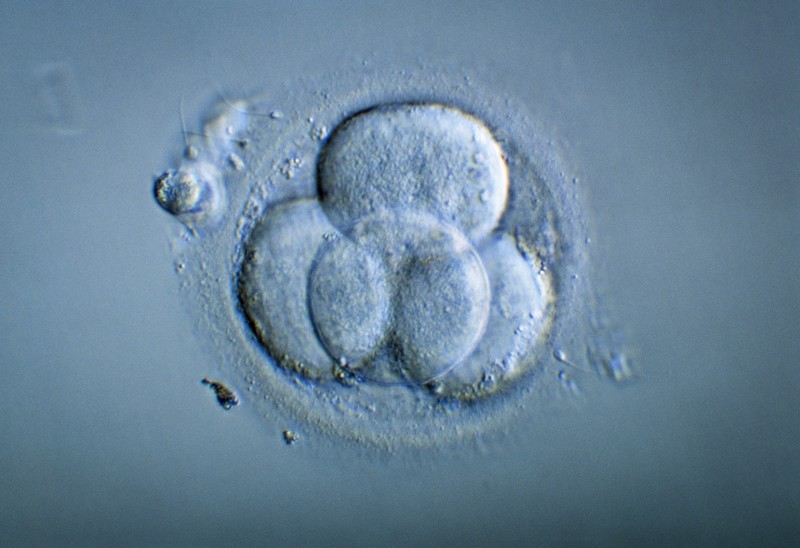by YVAINE YE

Researchers in China show that a technique used to replace diseased mitochondria does not affect early development.
When the first baby to be conceived using a technique that mixes genetic material from three people was born, in 2016, scientists worried that the procedure had not been studied to show it was safe. Now, scientists in China have conducted the first comprehensive study of the technique in early-stage human embryos, and report that it does not seem to affect their development1.
Techniques for using genetic material from three people to make embryos are designed to prevent mothers with defects in their mitochondria — the organelles that provide cells with energy — from passing them on to their children. Mitochondria contain their own DNA, and children inherit all of their mitochondria from their mother.
“Mitochondrial replacement therapy is a controversial field,” says study co-author Wei Shang, an obstetrician and gynaecologist at the Chinese PLA General Hospital in Beijing. “With our research, we hope to provide a foundation for the development of the technique.”
Spindle transfer
Shang and her colleagues studied the safety of one of three main types of mitochondrial replacement therapy, called spindle transfer, which was used to make the first baby with genetic material from three people, who was born in Mexico in 2016. In this method, the nuclear DNA from the egg of a woman with faulty mitochondria is transferred to a donor egg with healthy mitochondria that has had its nuclear DNA removed. The egg is then fertilized with the father’s sperm in a test tube. The resulting embryo contains genes from both parents in addition to mitochondrial genes from the donor.
As part of the study, the team compared dozens of human embryos that underwent spindle transfer with a control group of embryos. Both sets of embryos were allowed to develop for up to one week after fertilization. The researchers found that cells from a five-day-old ‘blastocyst’ in both groups had almost identical levels of gene expression and transcription, suggesting that spindle transfer does not seem to affect early embryonic development. The authors reported their findings in PLoS Biology last month1.
Nature for more
